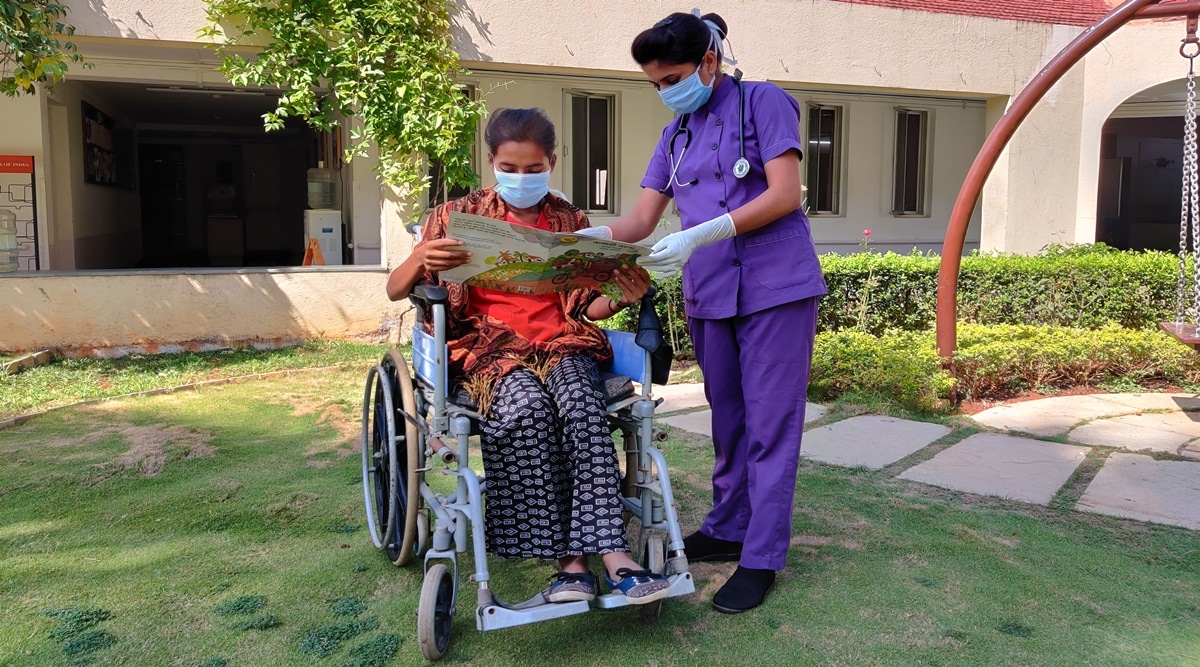 Palliative Care puts the patient at the centre, not the disease.
Palliative Care puts the patient at the centre, not the disease. Palliative care in cancer and its impact on patients with cancer or caregivers is not talked about widely.
Ahead of the World Cancer Day on February 4, CIPLA foundation — that has a palliative care centre in Pune — Managing Trustee of Cipla Foundation, Rumana Hamied told The Indian Express that palliative care is an approach to healthcare that goes beyond symptomatic treatment to compassionate, preventive and curative care for the patient and family.
“By integrating it into the healthcare system, we can achieve holistic wellbeing for communities, avert catastrophic expenditure and address unnecessary suffering. Palliative Care puts the patient at the centre, not the disease.”
Integrating palliative care with cancer diagnosis improves outcomes for patients and caregivers was the key message of the #AshaHamesha campaign that was launched by Cipla Palliative Care as a run up to World Cancer Day.
Dr Prakash Fernandes, who leads the palliative care partnerships at CIPLA foundation, said that as part of their effort to address stress, anxiety and fear caused by cancer and made harder by Covid, Cipla authorities said they had earlier launched a CAN-HELPER — Cancer Helpline for Emotional Support — (the toll-free number is –09511948920) in English, Hindi and Marathi.
“Number of patient consultations we have undertaken during the Covid-19 pandemic in Pune from April-December 2020 (through in-patient care, homecare, OPD) is 5400. Plus, we have made 1040 teleconsultations during this time,” CIPLA authorities said.
Maharashtra commits to eliminate Neglected Tropical Diseases
World Neglected Tropical Diseases (NTD) Day, which was observed on January 30, is a key moment in the fight against NTDs. This group of preventable diseases include Lymphatic Filariasis (Hathipaon), Visceral Leishmaniasis (Kala-Azar), leprosy (Kusht-Rog), dengue, chikungunya, snakebite, rabies etc. that are responsible for killing and disabling millions of people in India every year.
Pune headquartered State Joint Director of Health (Malaria/Filaria) Dr ND Deshmukh told The Indian Express that they remained committed to ensure India meets its NTD elimination target much before 2030”. While COVID-19 diverted resources and attention away from other critical health issues like NTDs, Maharashtra was quick in resuming NTD-related activities in alignment with the WHO’s guidance, he said.
Several awareness activities were held in the state to raise awareness about NTDs including organisation of hydrocele surgery camps and demonstration of awareness campaigns held at village and HQ level.
Mixed reactions to health budget
Health activists have said that there were expectations from the Union Budget 2021 but were disappointed as no growth in healthcare spending was visible for the forthcoming fiscal year.
Pune-based Dr Abhay Shukla, national co-convenor of Jan Swasthya Abhiyaan said the Budget shows an increase of just 8.5 per cent.
“Despite frontline health workers such as, Anganwadi and Asha workers, being at the forefront of COVID response, the Budget fails to allocate funding for ensuring minimum wage and insurance for all frontline health workers,” Amitabh Behar, CEO of Oxfam India said.
City-based health activist Dr Anant Phadke too pointed out that spending on healthcare was clubbed with other overheads like drinking water and sanitation and hence there was no genuine substantial increase in the expenditure on health.
However, Abrarali Dalal, COO of Sahyadri hospitals in Pune, said the Rs 2,23,846 crore outlay in the Budget on healthcare — an increase by nearly 137 percent — and Rs 35,000 crore for vaccination reflects the special attention accorded to the sector.